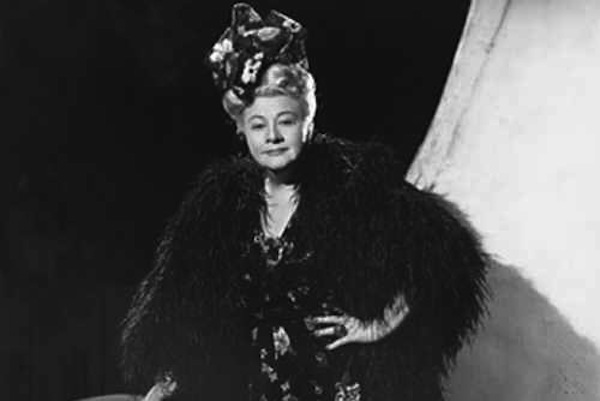Fuse Film Review: Jewishfilm 2015 — Sometimes You Feel Like a Nut, Sometimes You Don’t
Both of these entries in Jewishfilm 2015 have their entertaining moments, but the movies ultimately fail to deliver.

A scene from “Mr. Kaplan.”
By Paul Dervis
The National Center for Jewish Film’s 18th Annual Film Festival opened last weekend with two diverse offerings: Mr Kaplan (screening May 10 at West Newton Cinema) and The Outrageous Sophie Tucker (screening May 10 at West Newton Cinema). The first is an attempt at dark comedy that deals with aging and suspicions concerning Nazi war crimes. The second is a a pseudo documentary about ‘the last of the red hot Mommas.’ Both, however entertaining they manage to be from time to time, ultimately fail to deliver.
Mr Kaplan was written and directed by Álvaro Brechner, who in 2009 wrote and directed Bad Day to go Fishing, a film that became an enormous fave at international film festival awards. Here he attempts to weave together comedy and pathos without managing to pull off either.
Jacob Kaplan is a man approaching eighty and questioning what he has done with his life. Spared Nazi atrocities because he was whisked out of Europe at the age of seven and brought to Uruguay, he has lived a quiet, somewhat pedestrian life. Distanced from his two sons, one a success and the other a slacker, and his long-suffering wife, Jacob seems to connect only with his teenage granddaughter, Lottie. No longer allowed to drive, and barely able to think straight, he senses his time to contribute to this world is running short. But Jacob receives his mission: while he and Lottie are sharing a contraband cigarette on the roof of his apartment building, she mentions a cafe owner at a local beach that the kids call “the Nazi.”
Jacob has found his purpose!
The family hires an ex-cop to chauffeur Jacob around town, thus inadvertently giving the old man a partner to assist in the scheme to kidnap the old German. A Don Quixote/Sancho Panza relationship is established here. The old man, losing his mind, teaming up with a simple and bumbling cohort. Many of the laughs in the film are generated from this charming relationship…but as opposed to ‘black humor,’ these chuckles are not rooted in pain.
Given the sentimental buttons the film pushes, it should come as no surprise that audiences are diverted. The acting, in particular Nidia Telles as the wife and Nuria Flo as Lottie, hints at more depths than the dialogue ultimately delivers. And the climax, though quite predictable, is nonetheless effecting.

Sophie Tucker — a fascinating American entertainer.
The Outrageous Sophie Tucker is a fascinating idea for a documentary. Tucker, who held court as one of the very few major attractions who successfully made the transition for burlesque and vaudeville into film and finally television, has all the makings of an insightful piece to American showbiz history. The producers had access to a hundred volumes of Tucker’s personal scrapbooks, and they use them extensively. They also had been given priceless time to interview people who had been touched in one way or another by Tucker, ranging from family members to Tony Bennett and Barbara Walters, who’s father owned a Florida nightclub that Tucker routinely performed in.
And these interviews are, in fact, riveting. Combined with the archival footage of the performer, this should have been a ninety minute whirlwind ride through the first six decades of 20th Century American culture.
And it almost was.
But the film stumbles because of the worshipful-to-the-max attitude of its producers. They are so in love with the idea of Sophie Tucker that they cannot stand the thought that someone should utter a negative — or even a complex — word about her. For example, Tucker had a son at seventeen and left the infant with her family to stake her claim in New York. But without even examining Tucker’s responsibility toward her child, the film merely states that he was trouble from the start. The fact that he contracted syphilis in his early twenties seems to be further proof to the producers that he was simply a bad seed.
Worse, producers Lloyd and Susan Ecker are given more screen time than anyone other than Ms Tucker herself. We know why they fell in love with Sophie (Bette Midler brought her to their attention in the early seventies), and we know that they feel Tucker is a member of their family because they tell us so, and they spend countless minutes of screen time relating stories as if they themselves were there. But maybe the most unprofessional element of the film comes toward the end when Lloyd is describing her passing (at the age of eighty I might add). He starts to cry — ON CAMERA! This is a man who had not even heard of Sophie Tucker until almost a decade after her death.
The footage of Sophie Tucker is priceless…but the testimonials from the filmmakers, unfortunately, are worthless.
Paul Dervis has been teaching drama in Canada at Algonquin College as well as the theatre conservatory Ottawa School of Speech & Drama for the past 15 years. Previously he ran theatre companies in Boston, New York, and Montreal. He has directed over 150 stage productions, receiving two dozen awards for his work. Paul has also directed six films, the most recent being 2011’s The Righteous Tithe.
